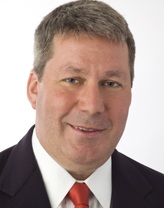As the M&A wave sweeps over pharma, companies are wheeling and dealing for a number of different reasons. Slim-down strategies, tax break potential, portfolio diversification and other usual suspects have all driven transactions as of late--but the promise of price hikes has, too.
More and more drugmakers are snapping up drugs or companies with products they see as undervalued--and then jacking up the prices on those meds, The Wall Street Journal notes. As a June 2014 research note from Needham & Co. points out, the number of 50% drug-price jumps in the past 2.5 years matched the number the industry saw in the prior decade, the paper reports.
It's easy to see what makes the strategy appealing for biopharma companies. After all, price hikes--justified or not--can boost sales without the need for risky R&D investments.
 |
| Valeant CEO J. Michael Pearson |
It's no surprise that R&D-averse--and M&A-happy--Valeant ($VRX) is among the strategy's biggest enthusiasts. In February, after grabbing rights to two heart drugs, Valeant upped their list prices by 525% and 212%: Abnormal heart rhythm treatment Isuprel leapt to $1,346.62 per vial from $215.46, WSJ reports, while blood pressure therapy Nitropress vaulted to $805.61 from $257.80.
The motivation for those enormous increases? "Our duty is to our shareholders and to maximize the value" of the products that Valeant sells, company spokeswoman Laurie Little told the newspaper. "Sometimes pricing comes into it, sometimes volume comes into it."
Valeant, of course, isn't the only company jacking up prices. Illinois' Horizon Pharma ($HZNP), for one, sent the price of Vimovo pain tablets soaring by 597% after buying the rights from AstraZeneca ($AZN) in 2013, the WSJ points out.
The company says the Vimovo price increase has "limited financial impact on the patient," partly because of its copay assistance programs. Not so with payers--and they haven't been too happy to watch prescription prices soar. Heavyweight pharmacy benefits managers have gone to war inking exclusive agreements with hep C drugmakers to bring prices down, and it's an act they say they're ready to bring to fields like cancer, too.
 |
| Cleveland Clinic chief pharmacy officer Scott Knoer |
Meanwhile, Valeant's price increases are having a measurable impact, at least at the Cleveland Clinic. Spending on those two heart drugs leapt by $8.6 million thanks to the higher prices, said Scott Knoer, Cleveland Clinic's chief pharmacy officer. "We're already under tremendous pressure to reduce costs because of reimbursement changes due to health-care reform," Knoer told the WSJ, adding that he had hoped to cut drug spending by $10 million this year. The Valeant drugs made a dent in those hopes. "In one fell swoop, it eliminated nearly all of the savings we projected we would achieve," Knoer told the newspaper.
- get more from the WSJ (sub. req.)
Special Reports: 10 big brands keep pumping out big bucks, with a little help from price hikes | The top 10 most expensive drugs of 2013